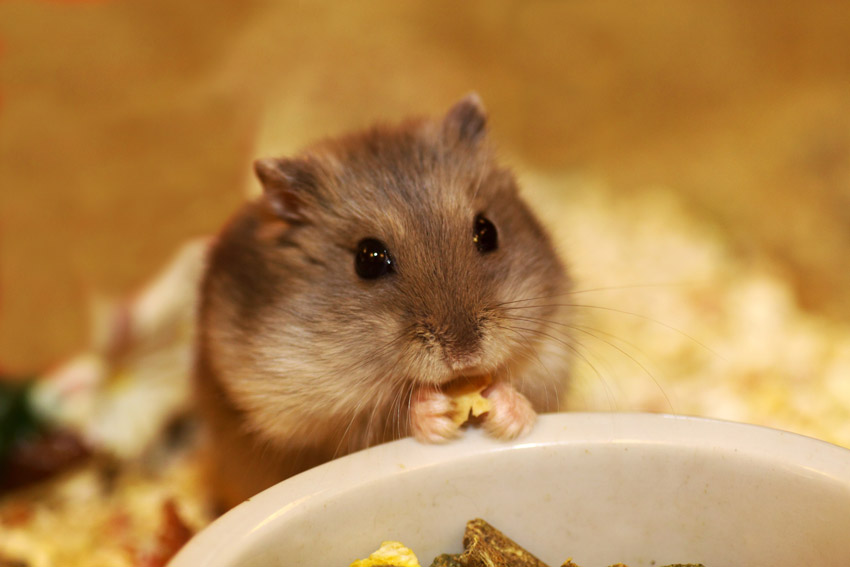“Hamster Health 101: Common Illnesses, Symptoms, and Treatments”

Hamsters are adorable and low-maintenance pets, but they are also delicate creatures prone to various health issues. Due to their small size and fast metabolism, even minor illnesses can become serious quickly if left untreated. Recognizing symptoms early and providing proper care is vital for their well-being.
This guide covers the most common hamster illnesses, their warning signs, and how to treat or prevent them.
1. Wet Tail (Proliferative Ileitis)
Symptoms:
- Wet, dirty tail area
- Diarrhea
- Lethargy
- Loss of appetite
- Hunched posture
Cause:
Usually caused by stress, especially in young hamsters, or poor hygiene.
Treatment:
- Immediate veterinary care is crucial
- Antibiotics prescribed by a vet
- Rehydration with water or electrolyte solutions
- Clean cage thoroughly to prevent spread
Note: This is often fatal if not treated early.
2. Respiratory Infections
Symptoms:
- Sneezing or wheezing
- Nasal discharge
- Labored breathing
- Lethargy
- Wet or matted fur around the nose
Cause:
Cold drafts, dusty bedding, or bacteria.
Treatment:
- Move to a warmer, draft-free area
- Vet-prescribed antibiotics
- Keep cage clean and bedding dust-free
3. Skin Problems (Mites, Mange, Allergies)
Symptoms:
- Hair loss or thinning fur
- Itchy behavior (excessive scratching)
- Red or inflamed skin
- Scabs or flaking
Cause:
Parasitic mites, fungal infections, or allergic reactions to bedding or food.
Treatment:
- Veterinary diagnosis needed
- Medicated shampoo or anti-parasitic medication
- Change bedding to non-allergenic materials

4. Dental Problems (Overgrown Teeth)
Symptoms:
- Drooling
- Difficulty eating or weight loss
- Swollen jaw
Cause:
Hamster teeth never stop growing and must be worn down.
Treatment:
- Provide chew toys or wooden blocks
- In severe cases, vet may need to file the teeth
5. Diarrhea (Non-Wet Tail)
Symptoms:
- Loose stools
- Mild dehydration
- Slight lethargy
Cause:
Sudden dietary changes, spoiled food, or stress
Treatment:
- Remove fresh fruits/veggies temporarily
- Offer dry foods like plain oats or pellets
- Keep hamster hydrated
- Consult a vet if symptoms persist
6. Tumors and Abscesses
Symptoms:
- Lumps or swelling on the body
- Bleeding or discharge
- Difficulty moving
Cause:
Can be benign or cancerous growths, or bacterial abscesses from bites/injuries
Treatment:
- Veterinary evaluation
- Surgical removal may be necessary
7. Eye Infections or Injuries
Symptoms:
- Swollen or crusty eyes
- Discharge or cloudiness
- Constant pawing at the eye
Cause:
Dust, injuries, or bacterial infections
Treatment:
- Gently clean with warm saline solution
- Vet may prescribe antibiotic eye drops
8. Hibernation vs. Illness (Torpor Confusion)
Symptoms:
- Cold to the touch
- Unmoving but with shallow breathing
Cause:
Sudden drop in temperature can induce torpor (false hibernation)
Treatment:
- Slowly warm the hamster
- Never place near direct heat
- Prevent room temperatures from falling below 65°F (18°C)
9. Nutritional Deficiencies
Symptoms:
- Poor coat condition
- Lethargy
- Weakness
Cause:
Unbalanced diet lacking vitamins/minerals
Treatment:
- Provide a commercial hamster mix
- Supplement with small portions of fresh vegetables and occasional protein (like boiled egg or mealworm)
10. Heatstroke
Symptoms:
- Panting
- Weakness or collapse
- Red ears or limbs
Cause:
High temperatures, especially in poorly ventilated cages
Treatment:
- Move hamster to a cool, shaded space
- Offer water on a cotton ball
- Use a cool, damp cloth on the body
Prevention Tips for a Healthy Hamster
- Clean the cage regularly
- Feed a balanced, species-appropriate diet
- Avoid temperature extremes
- Limit stress and handle gently
- Provide chew toys and an exercise wheel
- Watch for sudden behavioral changes

Conclusion: Spotting Illness Early Saves Lives
Many hamster health problems can be managed or even prevented with vigilant care and early detection. Since hamsters are prey animals, they often hide their symptoms until they’re very sick. Always act quickly if something seems off—and when in doubt, consult a small animal veterinarian.




